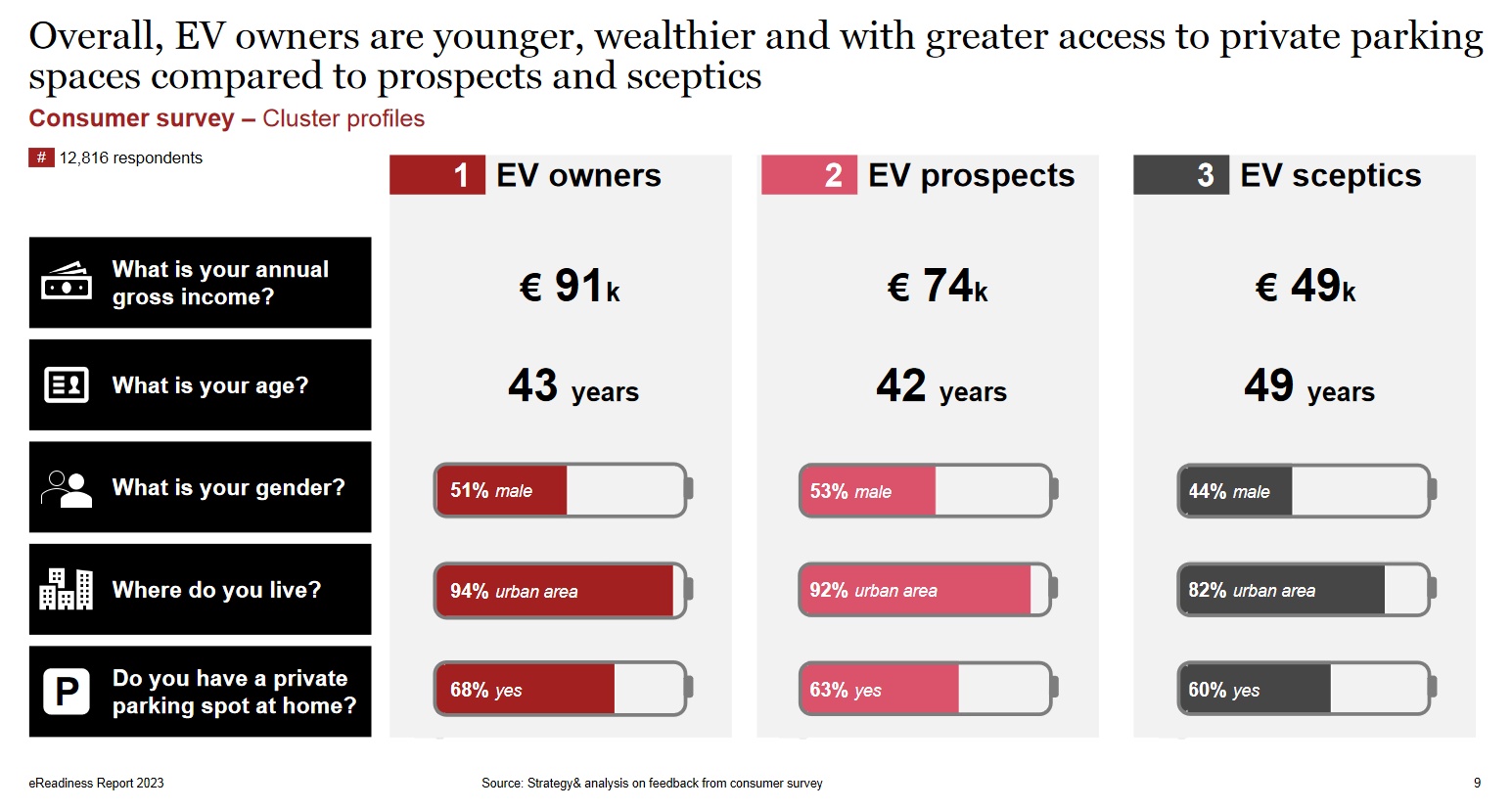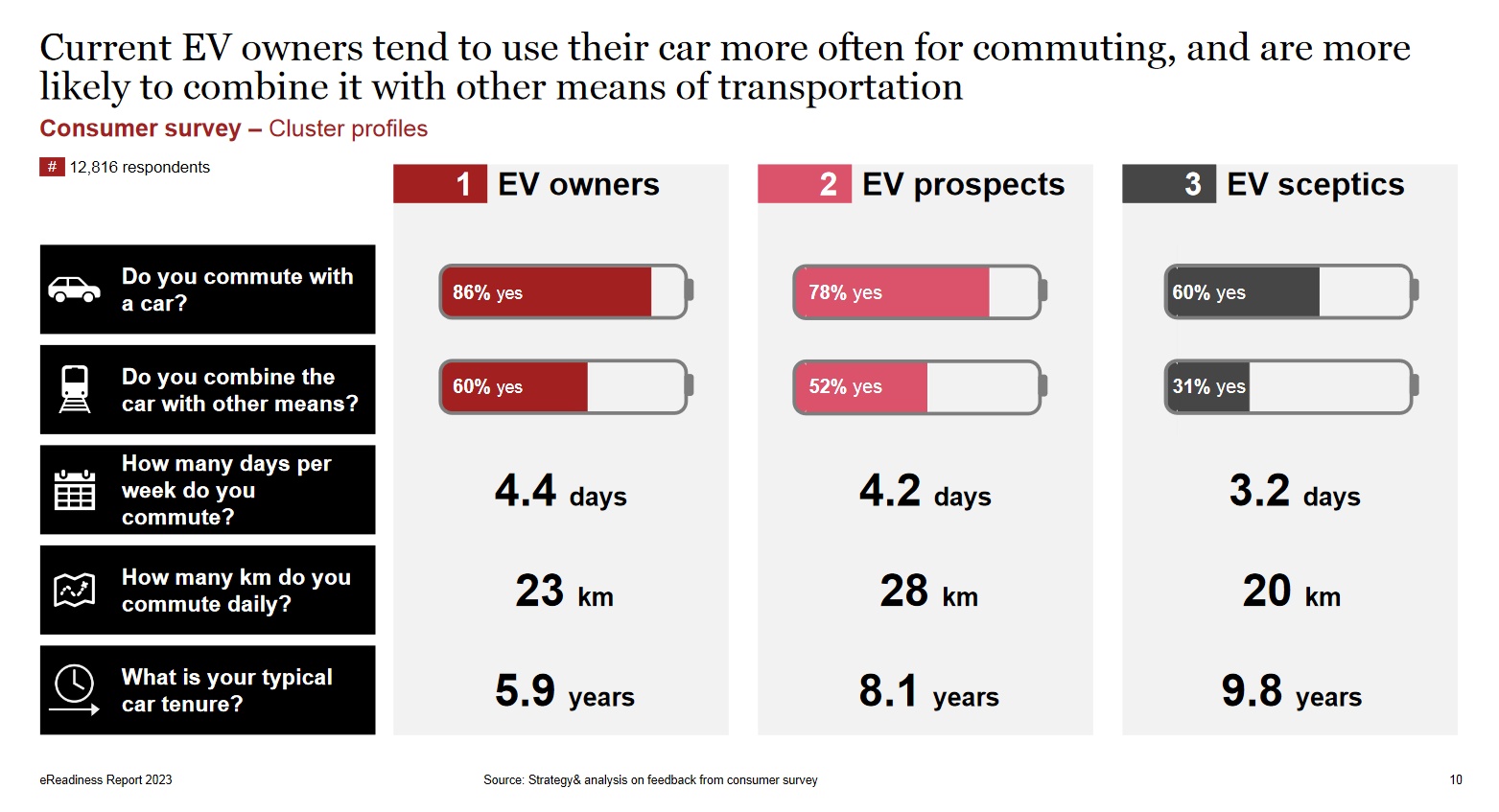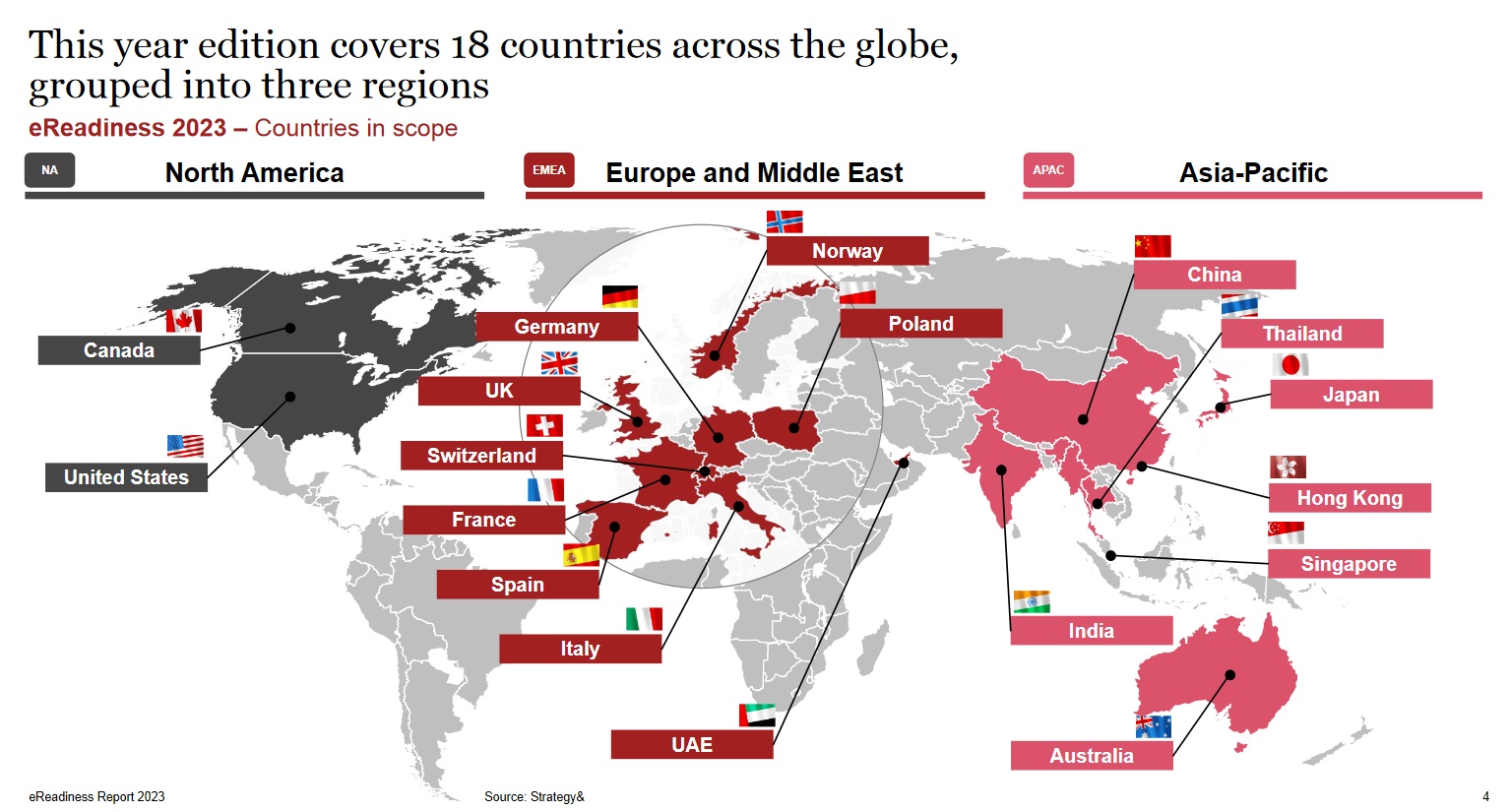An interesting study by PricewaterhouseCoopers (PwC) on who is buying electric cars or plug-in hybrids, who might consider them in the future and who is afraid of them. The report covers a total of 18 of the more advanced markets, surveying people from from the United States, Japan, Canada, Australia, Germany, China, France, Italy or Poland. Perhaps the most important information is that as many as 30 per cent of those surveyed are considering buying an electric car in the next two years.
Who wants an electric car, who is afraid of it
Electric car owners (EV Owners; a total of 6 per cent of respondents) are mainly high-income middle-aged men who live in urban areas, often in city centres, and have access to their own parking spaces. The other side of the coin, the Sceptics (31 per cent of respondents) are predominantly women with lower incomes who are six years older than the EV Prospects (source).

EV owners are the most affluent group, consisting mostly of middle-aged men. Sceptics are the least affluent, older group, consisting mostly of women (c) PwC
EV Prospects, potential buyers themselves, people who want to buy an electric car in the next five years, made up the largest part of the group surveyed (61 per cent). Their income is on average 20 per cent lower than EV Owners. A total of six personality types were identified in this group, with three of them – Tech Enthusiasts, Dreamers and Pragmatic – being the most determined to buy an electric car.
In the next two years, they are the ones who are expected to generate around 70 per cent of the demand for EVs, which means that the BEV market is becoming a mainstream market. What’s more: there is a lot of interest in the aftermarket, with up to 60 per cent of EV Owners wanting to buy an electric car there, mainly due to lower prices and better availability. A key concern is that of battery condition.
As many as 20 per cent of electric car sales are online, this is especially true for premium models (read: Tesla). Up to 65 per cent of customers are considering buying their next car online, it’s all about convenience and price transparency. The most electric-ready markets in Europe were Norway, Germany and Switzerland. Spain and Italy lagged behind despite government subsidies. The least ready for BEVs is Australia.
Entire report: eReadiness 2023 (registration required for download)

